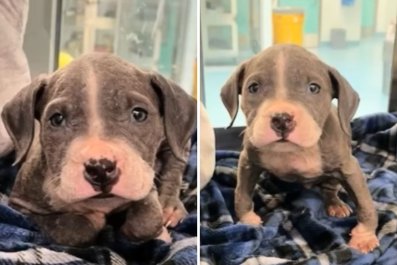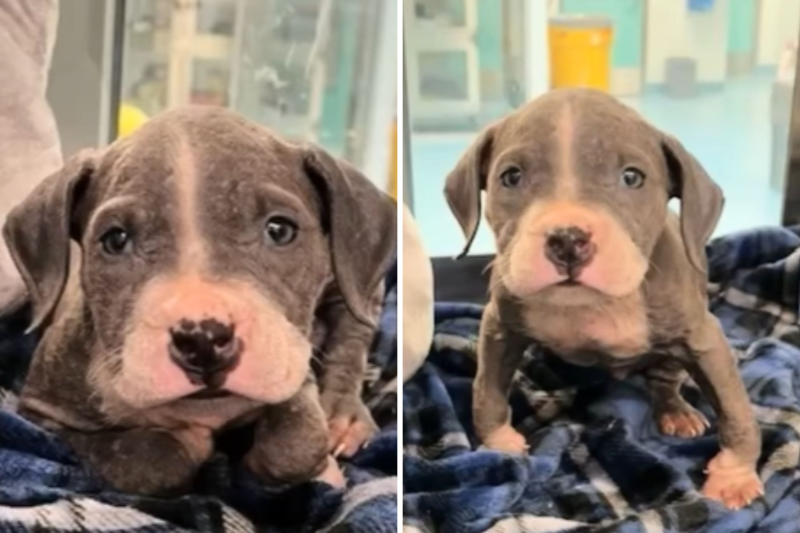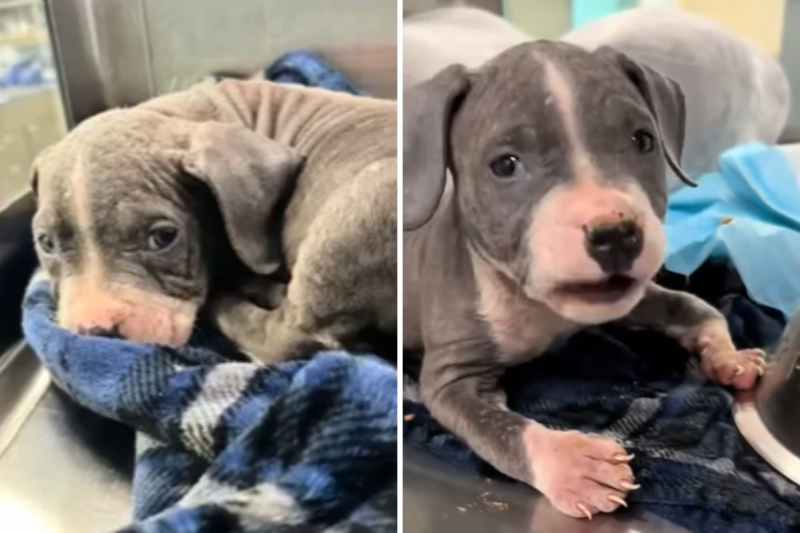
'Suffering' of Backyard Breeding Revealed as Shelter Rescues Deformed Puppy
An animal rescue has shown the dangers and "suffering" of backyard breeding after a deformed puppy was found all alone.
The Animal Care Centers of New York City (NYCACC) has issued a plea and a warning after a tiny puppy was found abandoned on the street "alone and unable to walk."
The pup, who they have named Eeyore, was found in the middle of New York City and handed in to the NYCACC, who shared a video on October 22 to its Instagram page @nycacc.
More From Newsweek Vault: Walmart+ Members Get New Perk Aimed at Pet Owners
Eeyore is just eight weeks old, but as the product of backyard breeding, is "already facing several health challenges," they wrote on the video.
"It's not just the puppies who suffer, but female dogs are overbred and often dumped after they can no longer have babies," rescue worker Katy Hansen told Newsweek. "Backyard breeding creates a cycle of suffering—more animals, less care, and no accountability."
The video, which has close to 3,000 likes, shows Eeyore lying on a warm blanket and looking up at his rescuers before attempting to walk and falling several times.
More From Newsweek Vault: The Top Rewards Credit Cards for Pet Owners
"His front legs are bowed, leaving him unable to walk properly," the NYCACC wrote. Eeyore is also suffering from a non-contagious form of mange, "which gives his skin a crusty appearance."
They added: "He's underweight but has a disproportionately large pot belly, from an intestinal parasite infestation. All signs of irresponsible breeding, likely by a backyard breeder."

A backyard breeder is the term for someone who breeds animals in an irresponsible way, often without knowledge or experience on how to safely breed—such as not screening for genetic issues, according to Paws.org.
More From Newsweek Vault: Pet Insurance 101: How Much Does It Cost and Is It Worth the Price?
Puppies from a backyard breeder may first appear healthy, but later develop congenital defects. And the mother dog may be continuously bred for years to produce litters for profit, jeopardizing that animal's health.
"There are obvious signs of irresponsible 'breeding' including inadequate nutrition, infectious diseases (e.g., kennel cough, parvovirus), parasite infestations (e.g., fleas and worms), behavioral problems, health issues, and genetic abnormalities," Hansen told Newsweek.
Eeyore is now being cared for by the NYCACC, receiving medical treatment for his multiple health issues, and a surgeon will decide the "best course of action for his leg deformities."

"Sadly, Eeyore's case is just one of many that we see due to backyard breeders," the NYCACC wrote on Instagram.
They then shared the story of another dog in their care, Pun, who has similar issues, as well as airway deformities and an underbite, and said both dogs' stories "highlight the lasting pain and suffering" from irresponsible breeding.
In more welcome news, Eeyore has a potential adopter lined up, but his road to recovery will be long and challenging.
The number of puppies coming into the NYCACC has "more than doubled in the last four years," Hansen said. "In 2024 we are expected to take in 250 puppies, our highest number in over a decade."
Do you have funny and adorable videos or pictures of your pet you want to share? Send them to life@newsweek.com with some details about your best friend and they could appear in our Pet of the Week lineup.
